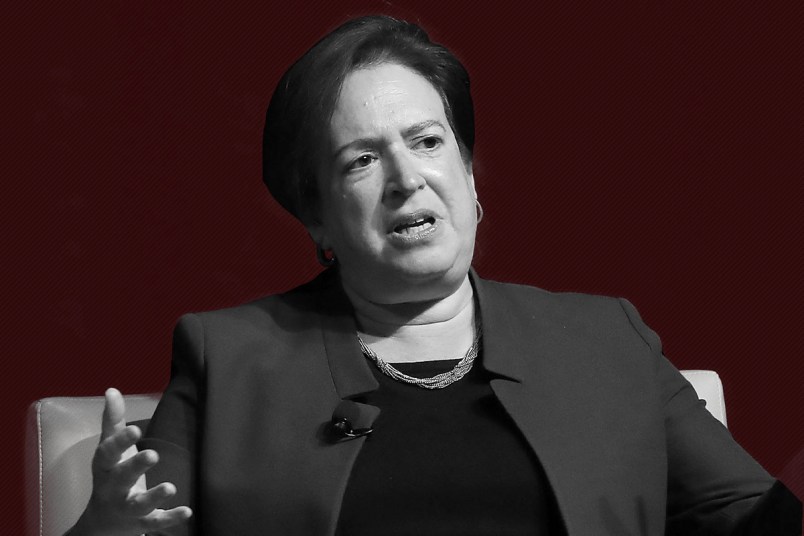During in-person oral arguments Tuesday, shoulder-to-shoulder with her conservative colleagues, Justice Elena Kagan lamented the demise of the Voting Rights Act that they helped effectuate.
She made the remarks as the High Court heard Merrill v. Milligan, a case stemming from Alabama’s redistricting process that the conservative justices could use to further hobble the VRA.
“This is an important statute, it’s one of the great achievements of American democracy to achieve equal political opportunity regardless of race, to ensure that African Americans could have as much political power as white Americans could,” she said.
“In recent years, this statute has fared not well in this court,” she continued.
She then recounted the Roberts Court’s history with the VRA, starting with Shelby County v. Holder, the infamous 2013 case that rendered preclearance toothless, which was housed under Section 5 of the Act. It was a requirement that districts with histories of voting discrimination must get federal approval before changing their election laws and procedures. Section 4(b), which the Court tossed out as unconstitutional, defined which districts qualified for preclearance.
Chief Justice John Roberts, writing for the majority, said that the requirements no longer made sense like they did in the 1960s and ‘70s due to the lessening of the racial voting turnout gap.
“Shelby County looks at Section 5 and says no, Section 5, we don’t need that anymore, and one of the things it says is that we have Section 2,” Kagan said, one seat down from Roberts.
She then turned to 2021’s Brnovich v. Democratic National Committee.
“Then Brnovich comes along and that’s a Section 2 case — and the court says, you know what, Section 2, they’re really dilution claims, this is a denial claim — so we can construe that very narrowly,” she continued.
In Brnovich, the conservative majority made it more difficult to affirmatively challenge discriminatory voting laws. That loss was all the greater after Shelby, which opened the floodgates for districts that had once been bound by preclearance to pass voter restrictions and purge their voter rolls.
That history brought Kagan to the present.
“Now here we are, Section 2 is a dilution claim — the classic Section 2 dilution claim — and you’re asking us, essentially, to cut back substantially on our 40 years of precedent and to make this too extremely difficult to prevail on,” she finished. “So what’s left?”







I don’t have a good feeling about this.
What’s left, indeed. A corrupted scotus is using their ill-gotten majority to enshrine and ensure the dominance of their sponsors, a fascist minority, in this country.
Well, I agree this corrupt majority thinks it’ll “ensure the dominance of their sponsors”.
But that’s not a guarantee.
Not by any stretch.
True, and all of us here are in the fight for the long haul. And I think this site has some real influence on our national discourse.
Good for you, Justice Kagan. Keep speaking truth to your sleazy,Trump appointed, so-called justices. Maybe, just maybe at some point they will begin to realize the damage they are doing to the court and this country.
And also maybe, Chief Justice Roberts might start to understand that his court, the one that will be remembered as the Roberts court, will go down in history as the worst Supreme Court in our history.